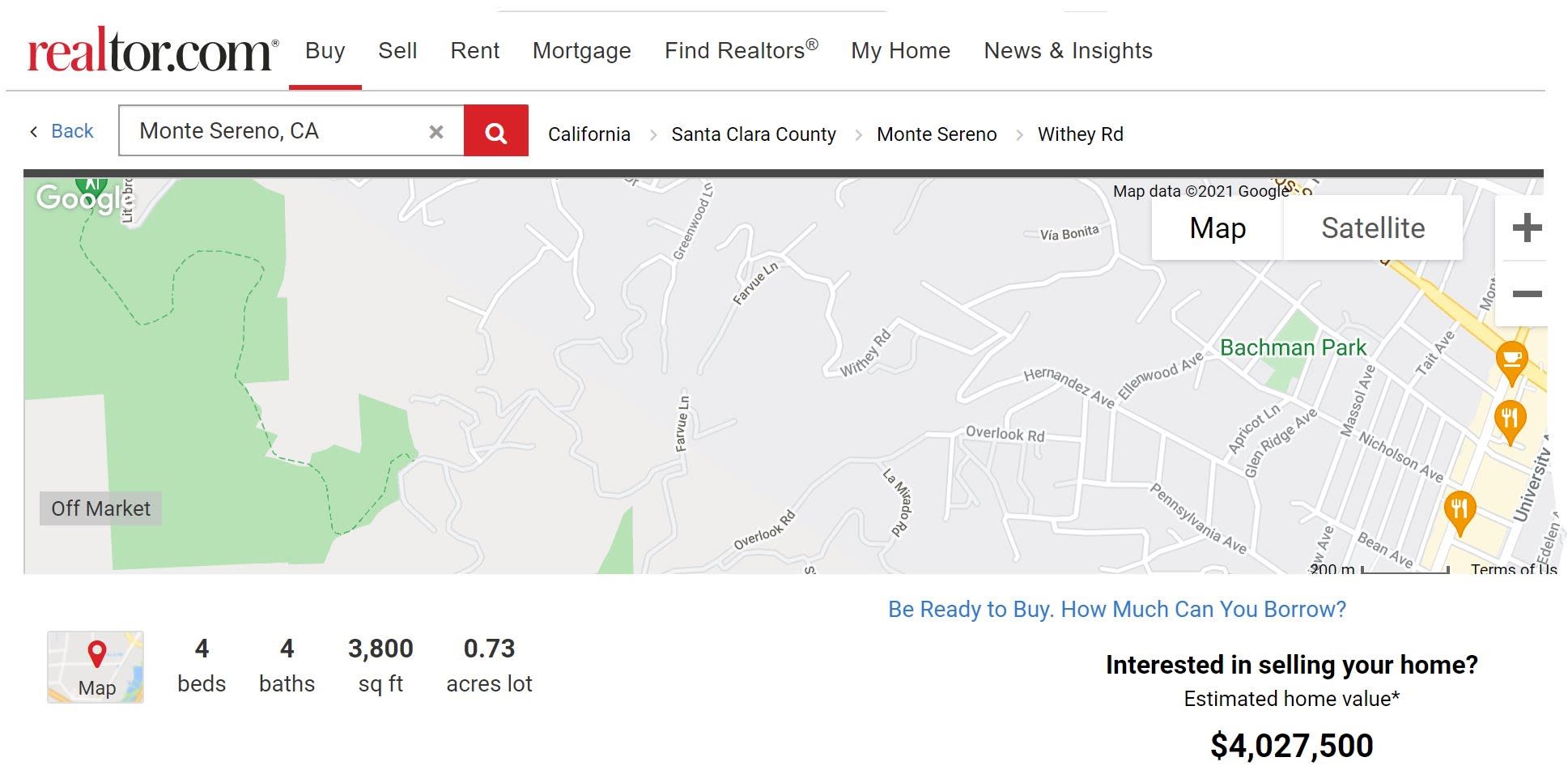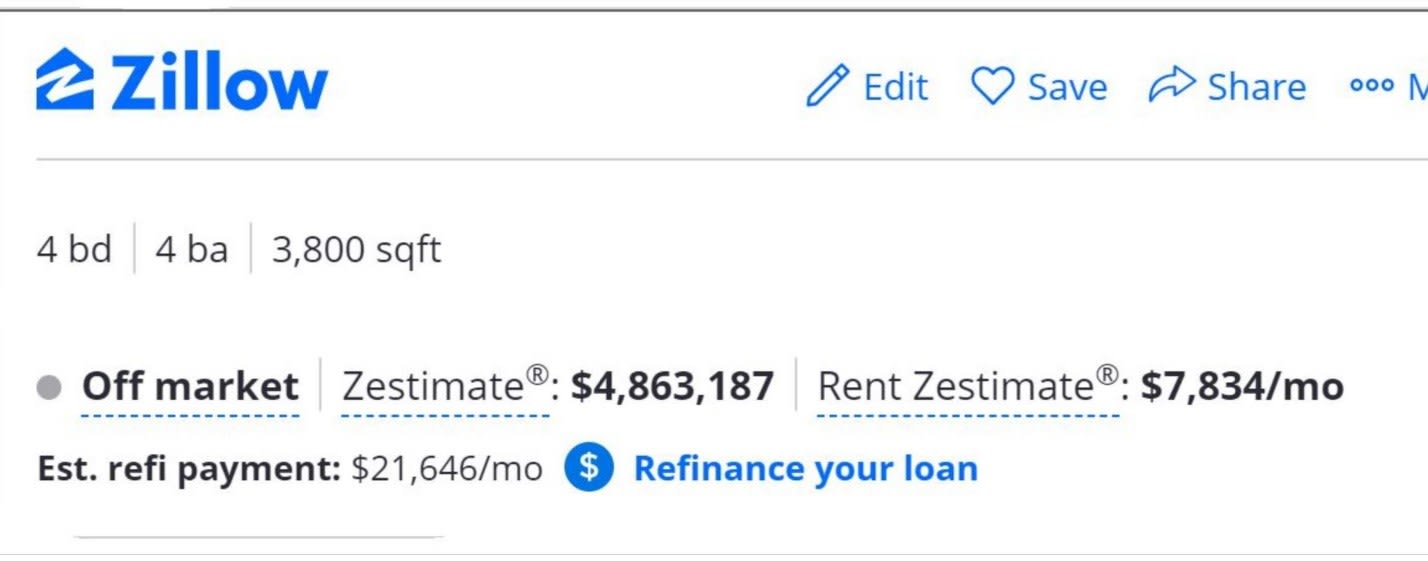6 Factors That Influence Home Value
Home value is the prospective sale price of a property (also known as the current market value), and it’s dependent on a variety of factors. Let’s review those.
1. Home Size and Rooms
When it comes to home value, size matters – both outside and inside your house. Here are the features that are taken into consideration:
Lot size. The size of the lot your home sits on can affect its worth immensely. While homes can be renovated to increase their size, land cannot, so the acreage of your property will be a vital measure in determining its value.
Square footage. Total home square footage enables professionals to be more objective in creating an evaluation as they calculate the price per square foot. Home buyers also tend to use this calculation to determine whether the pricing of homes is competitive enough.
Livable space. Beyond the square footage, the total number of rooms is also factored in. Home buyers look for homes that have the most livable space, which tends to include everything but unfinished basements, attics and garages. So, the more livable space you have in your home, the higher its value will be.
Beds and baths. A fundamental driving force of home value is the number of bedrooms and bathrooms present in a house. Homes that have more bedrooms and bathrooms can more comfortably accommodate people, which is why they’re preferred. Bedrooms that have windows and enough room for at least a double bed are more desirable. In some states, bedrooms must have windows to be considered legal. Basement bedrooms typically require an egress window.
Homes are also worth more when the number of bathrooms is equivalent to the number of bedrooms. En suite bathrooms are always favored, but there should also be a powder room accessible from the common area.
2. Home FeaturesFeatures that tend to increase the value of your home the most are those that are uncommon for homes in your area. Esteemed features often include:
Yet, real estate trends can influence the desirability of home features significantly, which is why the value of certain features tends to change over time. For example, while homes with formal dining rooms were once highly coveted, it’s now houses that have great rooms with open layouts that are in the most demand.
When determining whether your home has features that will increase its value, the best method is to survey the houses in your area to see how they stack up. Your living room may have a fireplace, but that probably won’t impact the value of your home if every house on the street has one, too. However, if your house is the only one in the neighborhood that has a private balcony off the primary bedroom, you can bet that it’ll increase your home’s worth.
Regardless of your home’s age, you’ll want to ensure that the foundation, roof and siding are all structurally sound, and that all the HVAC, electrical and plumbing work is up to date. An engineering report can help you determine if the condition of your home will increase or decrease its value.
4. Location
As the old saying goes, home value is all about “location, location, location.” While there are undoubtedly other relevant factors, where you’ve decided to put down your roots will have an extraordinary impact on what it’s worth today.
Why is that? Well, home value trends in one’s city or neighborhood influence how much potential buyers will be willing to pay for it. Homes in more popular areas will garner higher prices than homes in areas that are in less demand.
Where your house is located – its proximity to highways, good schools, shopping centers, etc. – will play a role in how eager others are to buy it. So, when deciding whether the location of your home is likely to increase or decrease its value, you should think about the convenience of your area, the safety of your neighborhood and the vacancy of homes nearby.
If the streets around you are filled with empty houses, that will negatively impact your home’s value. However, if your neighborhood is teeming with residents and there is rarely a home for sale, there’s a good chance yours will be worth more.
5. Comparable Sales
Home value changes over time because it’s largely determined by how much someone is willing to pay. The best indication of what a buyer will be willing to pay for your home is what other buyers have paid for similar homes in your neighborhood.
Therefore, all real estate professionals will consider comparable sales, or real estate comps, when providing a home valuation. Professionals run comps to see what your home is worth. Homes are viewed as comparable based on their square footage, number of bedrooms and bathrooms, features, style and specific location.
Relevant comps will be homes that have sold within the last 90 days since the market fluctuates so often. However, depending on your area and timing, finding comps can be difficult. Sometimes it can be necessary to look back 6 months to find relevant sales for valuation purposes. For comparable sales to accurately evaluate a home’s value, there must be at least three properties considered in the calculation.
6. Real Estate Market Factors
Local market: Just as recent sales in your area impact the value of your home, so does the inventory of homes currently for sale. The homes that are being listed on the market represent your home’s competition.
In a buyer’s market, there may be a slew of homes being listed that are similar to yours. If this is the case, your home will be viewed as less valuable because it’s one of many. On the other hand, if the supply of homes in your area is minimal or if the homes that are available are smaller, more outdated or in worse condition, you’ll find that your home is worth more.
National market: It’s not just the local market that impacts home value. The national market does as well. Current economic conditions can play a large role in the valuation of your home. When the economy is weak, unemployment rates rise and buying a home is far more of a risk. If consumer confidence is low and potential buyers are worried about their future finances, they will be more reluctant to pull the trigger on a new house.
APR: They will also factor into your home value, because it represents the full cost of borrowing funds. The APR includes the interest rate and the fees that a lender charges a borrower to originate a loan. If mortgage interest rates and fees are too high at the time you put your home on the market, buyers – who require financing – will be less likely to purchase a home.
Work With A Real Estate Agent
Real estate agents have access to better tools. They can run a comparative market analysis based on the information they gain from the local Multiple Listing Service (MLS), which has a complete rundown of all sales in your area.
Real estate agents will also go beyond the comparable sales and consider what makes your home different. They’ll factor in the condition of your home, the number of rooms, the upgrades and improvements you’ve made, etc. They’ll consider all of the features that your home has that the comps lack.
Another benefit of speaking to a real estate agent is that they can offer tips for how you can increase the value of your home. While an appraiser will come by and provide you with a final estimate of your home value, a real estate agent will show you how to improve it. With their knowledge of the industry, they’re able to create a punch list of minor repairs and updates that can help you get more money for your home.
Get A Home Appraisal
Home appraisals are often considered the ideal way to determine your home’s value. While a real estate agent will provide you with a home valuation based on what they think your home will sell for, an appraiser will tell you how much your home is actually worth.
Lenders tend to rely on appraisers for home valuations because they consider the appraisal process to be more rigorous. Appraisers will run comps just like real estate agents, but they’ll
dig deeper into the public records, research more information about your neighborhood and complete a thorough inspection of your home.
Appraisers will open every door, turn on every faucet and check every appliance. They’ll examine the structural integrity of your home and the condition of your electrical, plumbing and HVAC systems.
Home appraisals tend to cost at least $300 – $400, which is why some homeowners prefer to get the opinion of a real estate agent instead. And, even if you do get your home appraised before putting it on the market, your home will more than likely be appraised again when any potential buyer inquiries about financing.
The Bottom Line: Find Out How Much Your House Is Worth
Remember, there are numerous factors that influence your home value. The big ones to keep in mind are your home’s square footage, number of bedrooms and bathrooms, condition, age, location and the recent sales nearby.
Example


